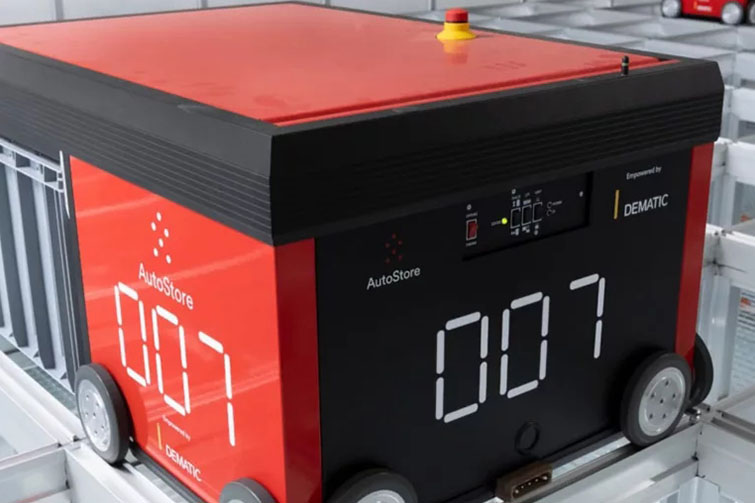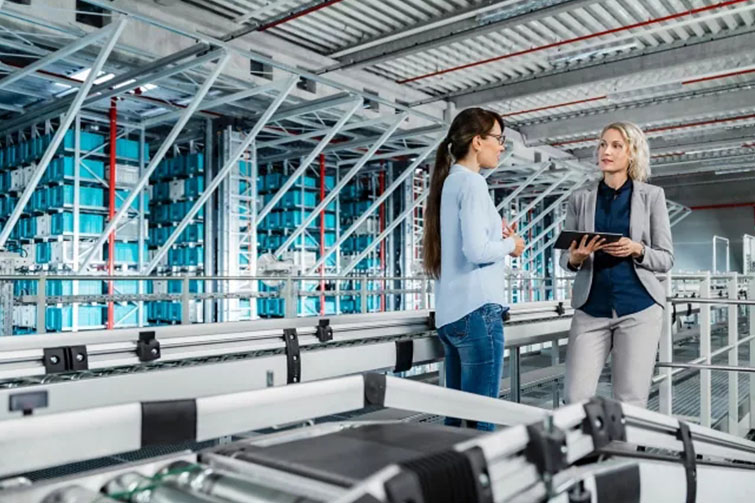

Building a Sustainable Supply Chain with AutoStore
In an era where environmental sustainability is no longer just an option but a necessity, businesses are seeking innovative ways to reduce their carbon footprint and operate more efficiently. One powerful solution gaining traction is AutoStore, an automated storage and retrieval system that revolutionizes warehouse management. But beyond its operational efficiency, AutoStore plays a pivotal role in building sustainable supply chains. This article explores how companies can leverage AutoStore to enhance sustainability, reduce waste, and optimize resource utilization.
What is AutoStore?
AutoStore is a compact, robot-operated storage system designed to maximize storage density and efficiency. Unlike traditional warehouses that require vast amounts of space and energy, AutoStore stacks bins vertically, allowing robots to navigate on top of a grid to pick and deliver items. This space-efficient design not only optimizes inventory management but also significantly reduces energy consumption.
Why Choose AutoStore for Sustainable Supply Chains?
As businesses strive to meet environmental standards and reduce their ecological impact, AutoStore offers several sustainability benefits:
- Space Efficiency: AutoStore requires up to 75% less space compared to traditional warehousing systems, reducing the need for large, energy-intensive buildings.
- Energy Efficiency: AutoStore robots consume minimal energy—comparable to a vacuum cleaner—making them highly energy-efficient.
- Reduced Carbon Footprint: By optimizing logistics and minimizing transportation requirements, AutoStore contributes to a lower carbon footprint.
- Operational Efficiency: With precise inventory management and fast order fulfillment, AutoStore reduces waste and enhances productivity.
1. Energy Efficiency and Reduced Carbon Emissions
One of the most significant environmental benefits of AutoStore is its energy efficiency. Traditional warehouses require extensive lighting, heating, and cooling systems. In contrast, AutoStore systems are compact and require less energy for operation. Here’s how:
- Low Power Consumption: AutoStore robots are designed to use minimal energy. In fact, ten robots consume less energy than a household vacuum cleaner, significantly reducing electricity usage.
- Energy Recovery Systems: AutoStore robots utilize regenerative braking technology, converting kinetic energy into electrical energy, which is fed back into the system, enhancing energy efficiency.
- Compact Design: The high-density storage layout reduces the physical footprint of warehouses, decreasing the energy needed for lighting and climate control.
Impact on Carbon Emissions:
By reducing energy consumption, AutoStore systems help lower greenhouse gas emissions, contributing to a smaller carbon footprint and supporting corporate sustainability goals.
2. Space Optimization and Land Use Efficiency
Land use is a critical factor in sustainability. Conventional warehouses require vast spaces, contributing to deforestation and habitat loss. AutoStore offers a more sustainable alternative:
- High Storage Density: AutoStore stacks bins vertically, increasing storage capacity by up to 60% within the same space.
- Reduced Warehouse Footprint: By maximizing vertical space, AutoStore minimizes the need for sprawling warehouses, preserving land and reducing environmental impact.
- Urban Warehousing: The compact design enables businesses to set up warehouses closer to urban centers, reducing transportation distances and emissions.
Environmental Advantage:
Smaller warehouse footprints and strategic urban locations contribute to efficient land use and reduced environmental degradation.
3. Waste Reduction and Efficient Resource Utilization
AutoStore optimizes inventory management, minimizing waste through accurate stock control and efficient order fulfillment:
- Precise Inventory Management: Real-time inventory tracking prevents overstocking and understocking, reducing expired or obsolete products.
- Minimal Packaging Waste: Accurate order picking reduces the need for excessive packaging materials.
- Lower Product Damage Rates: The automated handling of goods minimizes human errors and reduces product damage, decreasing waste.
Sustainability Impact:
By preventing overproduction and reducing packaging waste, AutoStore supports a circular economy model, enhancing overall resource efficiency.
4. Reduced Transportation and Logistics Emissions
Efficient logistics play a vital role in sustainable supply chains. AutoStore helps reduce transportation emissions by:
- Strategic Location Flexibility: Compact design enables warehouses to be located closer to urban centers, reducing last-mile delivery distances.
- Optimized Picking Routes: Intelligent algorithms optimize picking routes, minimizing the movement of robots and reducing energy consumption.
- Faster Order Fulfillment: With high-speed order processing, businesses can consolidate shipments, reducing the number of trips and emissions.
Environmental Benefit:
By cutting down on transportation requirements and optimizing delivery routes, AutoStore contributes to reduced fuel consumption and lower CO₂ emissions.
5. Enhanced Scalability and Adaptability
A sustainable supply chain needs to be adaptable to changing demands. AutoStore provides scalable solutions that support long-term sustainability:
- Modular Design: AutoStore systems can be easily expanded by adding more robots or grid modules, allowing businesses to scale without major infrastructure changes.
- Flexible Layouts: The adaptable layout design enables businesses to reconfigure warehouses as needed, extending the lifecycle of existing facilities.
- Sustainable Growth: Scalability ensures that companies can grow sustainably without excessive resource consumption or environmental impact.
Business Advantage:
The flexibility and scalability of AutoStore systems enable sustainable business growth while maintaining operational efficiency and minimizing waste.
6. Circular Economy and Lifecycle Management
AutoStore systems are built to last, supporting circular economy principles:
- Durability and Longevity: The modular design and robust construction ensure long-lasting performance, reducing the need for frequent replacements.
- Recyclable Materials: AutoStore components are made from recyclable materials, contributing to a circular supply chain.
- End-of-Life Recycling Programs: AutoStore provides recycling programs to responsibly dispose of outdated components, reducing electronic waste.
Circular Economy Contribution:
By promoting durability, recyclability, and responsible disposal, AutoStore supports a sustainable lifecycle management approach.
7. Case Studies: Real-World Sustainability Success
Several companies have successfully leveraged AutoStore to build sustainable supply chains:
- H&M: Reduced warehouse space by 50% while achieving faster order fulfillment and lowering carbon emissions.
- L’Oréal: Improved energy efficiency by 30% and minimized packaging waste with accurate order processing.
- Siemens: Reduced logistics emissions by strategically placing AutoStore systems closer to urban distribution points.
Key Takeaway:
These real-world examples demonstrate how AutoStore contributes to sustainable logistics, operational efficiency, and reduced environmental impact.
Conclusion: Leading the Way to Sustainable Logistics
AutoStore is not just about automation and efficiency—it's about transforming supply chains to be more sustainable, responsible, and adaptable. By optimizing space utilization, reducing energy consumption, and enhancing logistics efficiency, AutoStore empowers businesses to build eco-friendly supply chains that meet modern sustainability standards.
Why It Matters:
In today’s world, consumers and stakeholders expect companies to take responsibility for their environmental impact. Adopting AutoStore allows businesses to align with sustainable practices, reduce their carbon footprint, and achieve long-term profitability.
The Future of Supply Chains:
As e-commerce continues to grow and environmental concerns intensify, AutoStore will play a pivotal role in shaping the future of sustainable supply chains. Companies that embrace this innovative technology will be better positioned to lead in sustainability, operational efficiency, and customer satisfaction.






